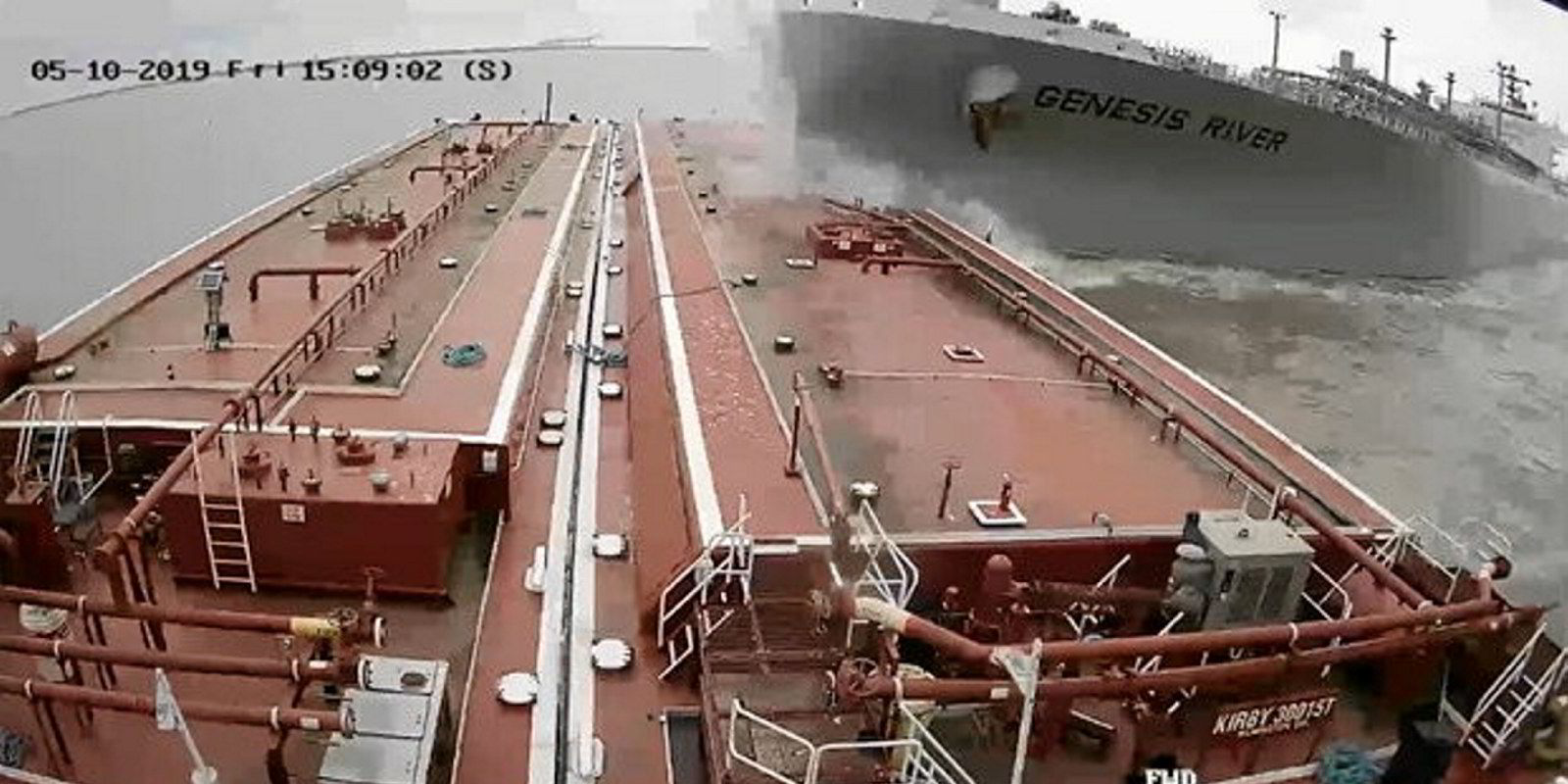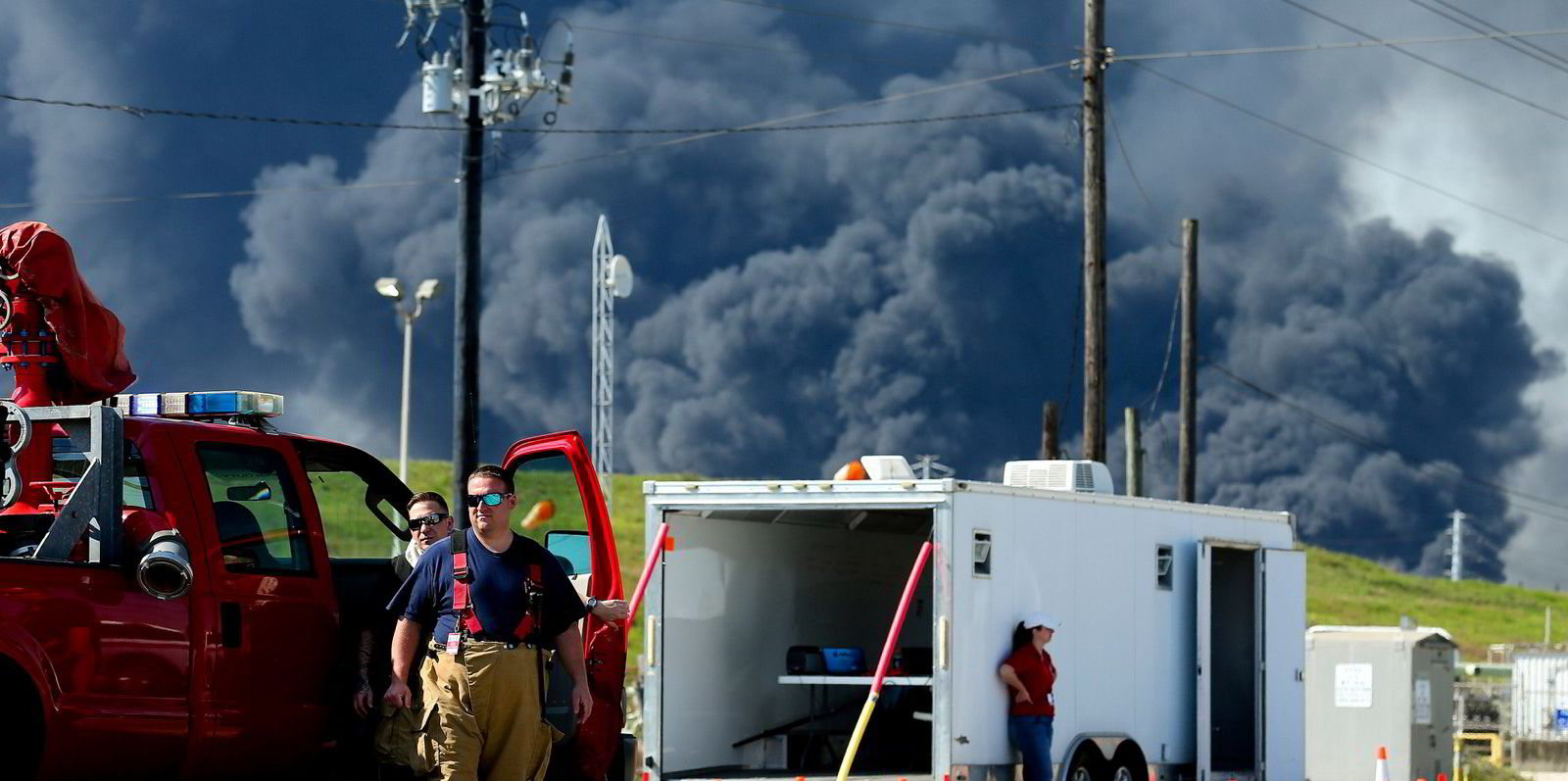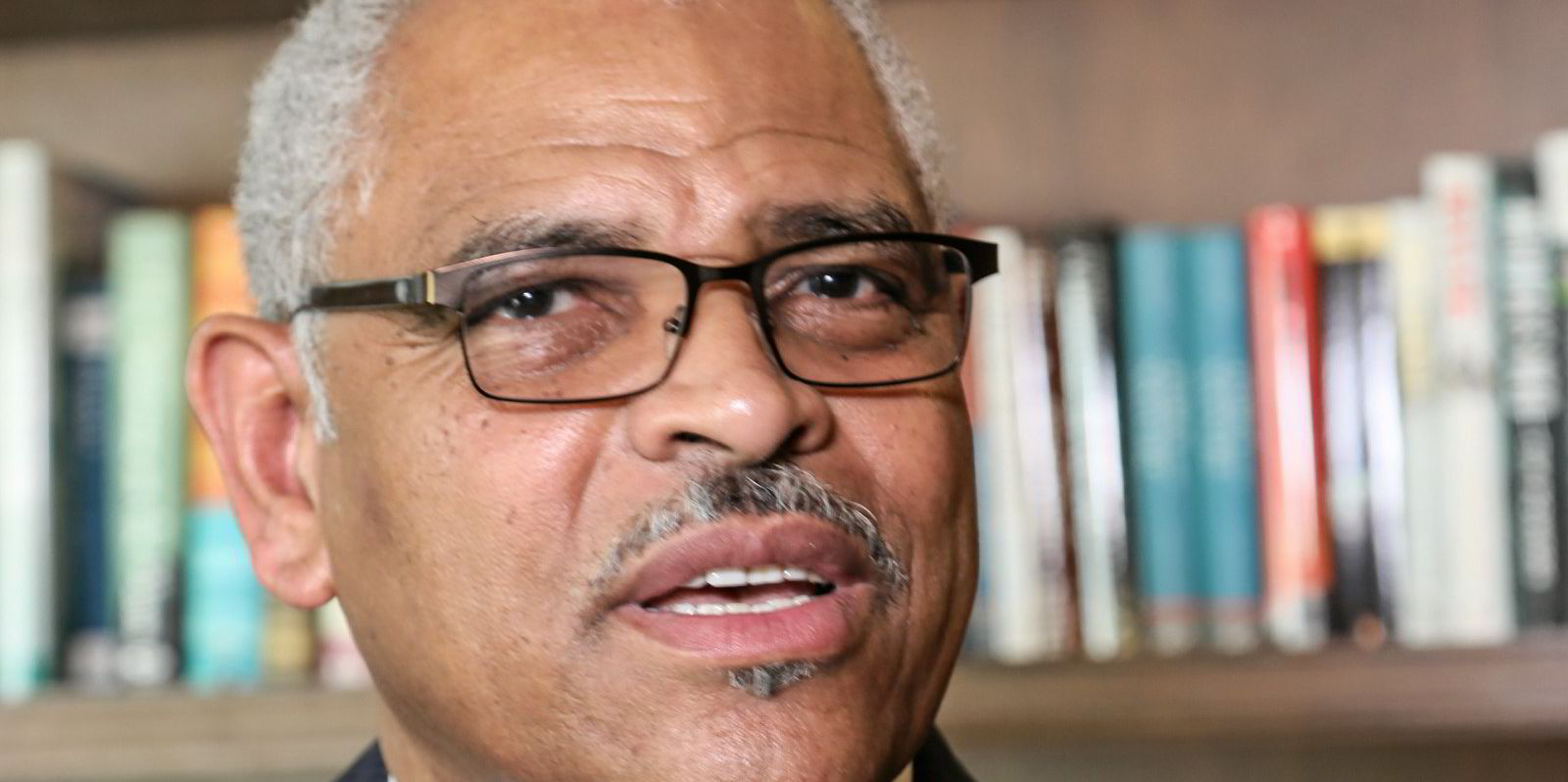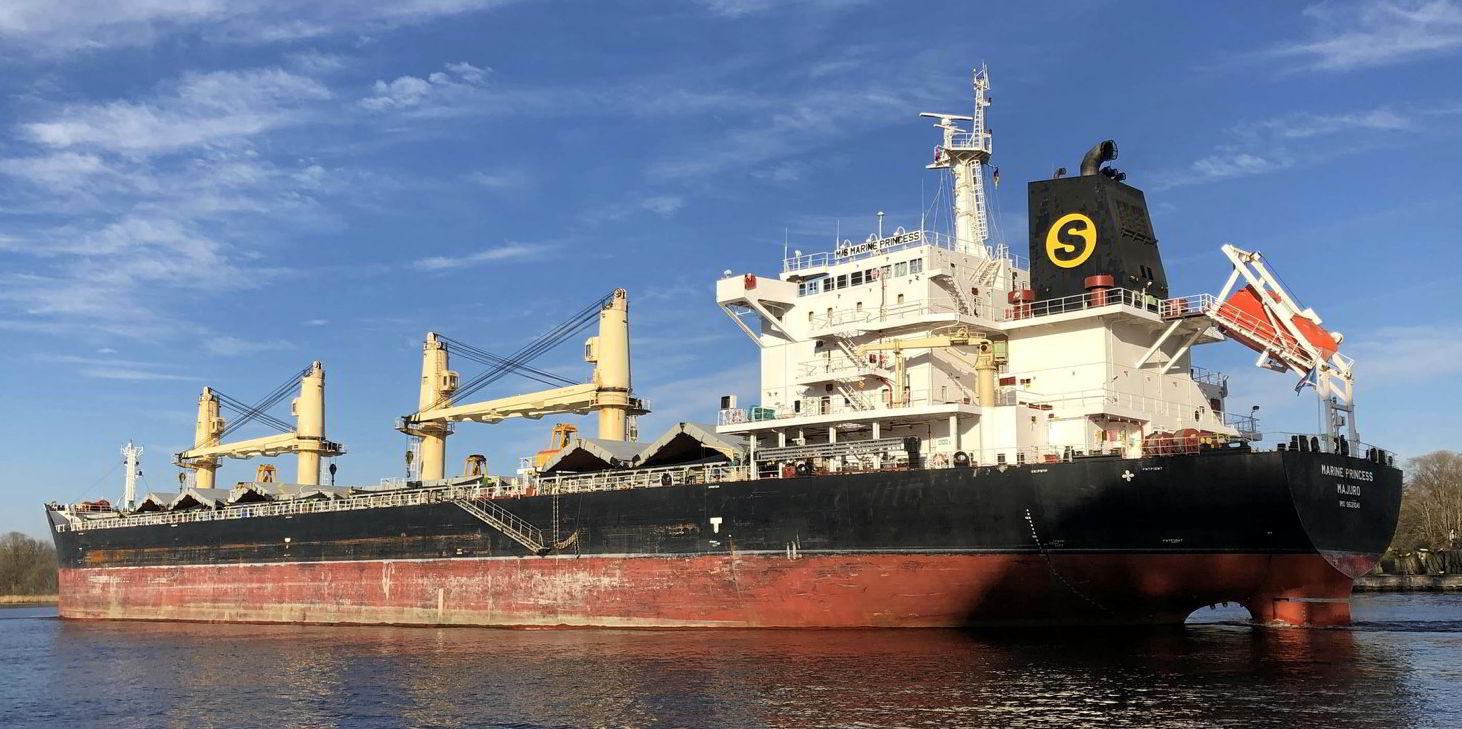The US National Transportation Safety Board (NTSB) said the decision to sail a K Line-controlled LPG carrier at sea speed through the Houston Ship Channel contributed to a 2019 crash and oil product spill.
The safety investigator said the 82,400-cbm Genesis River (built 2018) was in "'navigation full' mode at 'sea speed'" before it collided with a Kirby tank barge, leading to a spill of 11,000 barrels of reformate.
The speed plus the hydrodynamic effects of the Genesis River passing another deep-draught vessel hampered the pilot's ability to control the ship.
NTSB chairman Robert Sumwalt said: "Operating at sea speed reduces the ability to manoeuvre out of a dangerous situation.
"This is especially true in the Houston Ship Channel, a challenging waterway with a long history of accidents."
The crash, on 10 May 2019, ended up with more than 400,000 gallons leaking into the channel and sank the Kirby barge. The channel reopened partially three days later and fully on 15 May.
According to the NTSB, the Genesis River was leaving the channel and passed a similarly-sized inbound ship.
It then approached the west bank, then sheered to port, crossing to the opposite side of the channel where the Kirby-owned tug Voyager was pushing two tank barges.
The agency said it was advising Houston Ship Channel pilots not to sail large vessels at sea speeds in the lower part of the waterway and avoid passing arrangements between large vessels near the Bayport Flare.
Ships of the Genesis River's size should also be trimmed by the stern to increase manoeuvrability.
In the aftermath of the crash, Kirby sued K Line, which in turn blamed a BW Group VLGC — the 82,300-cbm BW Oak's (built 2008) — for the crash.
In its lawsuit, Kirby said the Genesis River changed direction twice before colliding with its ships, while K Line said the BW Oak was travelling too fast and forced it to change direction.
More than 700 commercial fisherman and seafood companies intervened in the legal battle, arguing all three organisations caused the spill and prevented them fishing, harvesting oysters and catching shrimp.
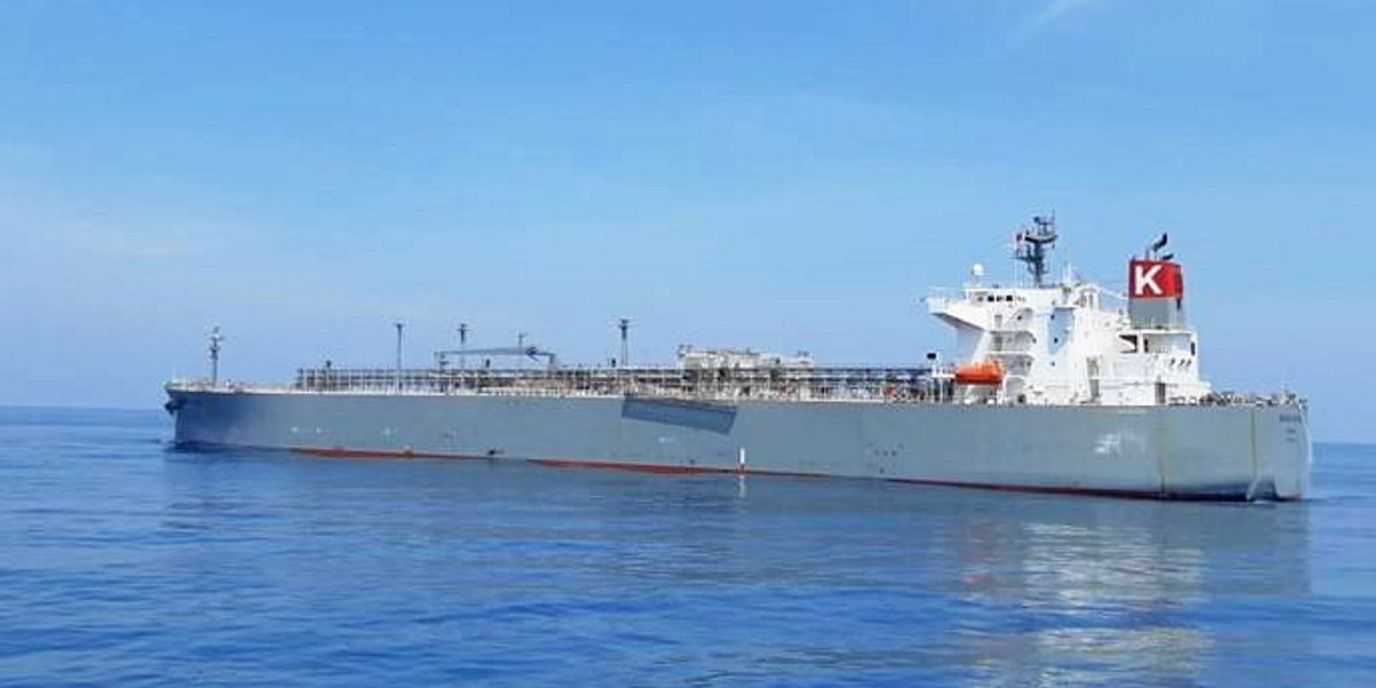
A bench trial was held in February.
In post-trial briefs, attorneys for the BW Oak and Kirby argued the Genesis River was completely at fault for the collision and spill.
The BW Oak argued the Genesis Rivers' ownership interests admitted some fault at the trial, but only provided one, paid witness criticising the BW Oak's manoeuvres before the collision while more than a dozen witnesses, including several Genesis River crew members, had no criticism of the BW Oak.
The Genesis Rivers' interests said it only bore partial responsibility, as it said the BW Oak crossed into the Genesis River's lane and that the Kirby tug's captain was on his cell phone for more than 20 minutes immediately before the crash.
The Genesis River's interests argued that it is only at fault for 55% of the crash.
